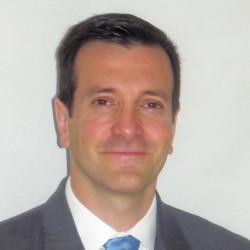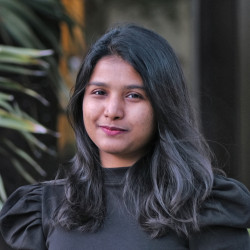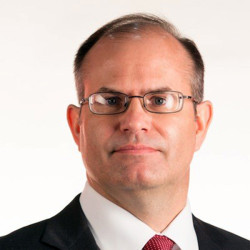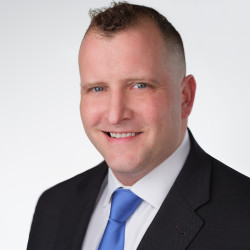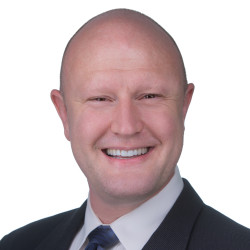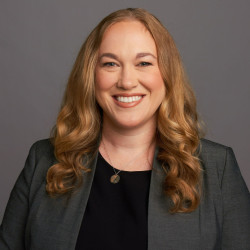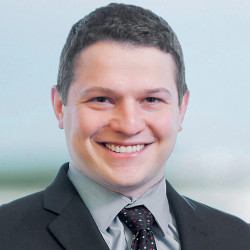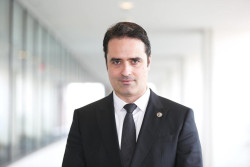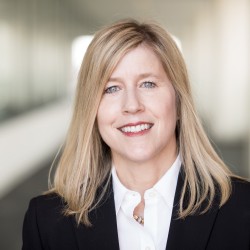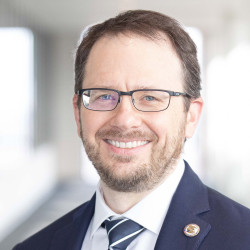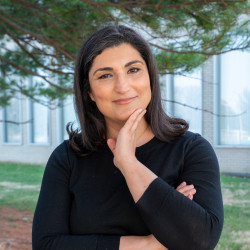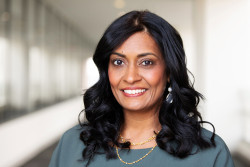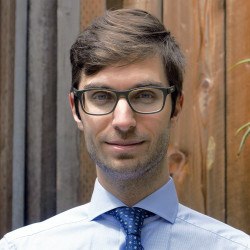The Artificial Intelligence (AI) and Emerging Technologies (ET) Partnership Series will hold its next meeting virtually and in person at the United States Patent and Trademark Office (USPTO) headquarters in Alexandria, Virginia on Wednesday, September 27, from 10:30 a.m. to 4 p.m ET.
During the meeting, presenters from the USPTO and other federal agencies and panels with diverse stakeholders from academia, industry, and law firms will explore various intellectual property (IP) policy issues with respect to AI tools and data. Presentations and panel discussions will cover:
- Efforts at the USPTO and elsewhere to harness AI to benefit stakeholders and the IP system
- The value of USPTO data in advancing the state-of-the-art in AI
- Timely policy issues related to trustworthy and responsible AI use
This event is free and open to the public, but in-person attendance is limited, so register early.
AI and ET Partnership event video
Agenda
All times listed are in ET. Questions or comments related to the agenda and event series can be submitted in advance to aipartnership@uspto.gov.
Time | Topic | Speaker |
|---|---|---|
Master of Ceremonies: Matthew Such, Technology Center Director, USPTO | ||
| 10:30-10:35 a.m. | Welcome | Matthew Such, Technology Center Director, USPTO |
| 10:35-10:45 a.m. | Opening remarks | Vaishali Udupa, Commissioner for Patents, USPTO |
| 10:45-11 a.m. | Demo of USPTO Virtual Assistant | Chris Doninger, Supervisory Attorney Advisor, USPTO |
| 11-11:25 a.m. | AI Patent Dataset | Nick Pairolero, Economist, USPTO Tisa Islam Erana, Ph.D. candidate, Florida International University |
| 11:25-12:25 p.m. | Panel Discussion - Advancing AI & IP research with USPTO data | Dean Alderucci, Director of Research, Center for Artificial Intelligence and Patent Analysis, Carnegie Mellon University Ian Wetherbee, Senior Staff Software Engineer, Google Alex Giczy, Data Scientist, Addx Corporation |
| 12:25-1:25 p.m. | Lunch | |
| 1:25-1:50 p.m. | AI Risk Management Framework | Elham Tabassi, Associate Director for Emerging Technologies, NIST |
| 1:50-2:10 p.m. | Demo of Patents End-to-End Similarity/More Like This Search | Jonathan Horner, Supervisory Patent IT Specialist, USPTO Nicholas Jensen, Academy Supervisory Patent Examiner Trainer, USPTO |
| 2:10-2:35 p.m. | Generative AI | Stephan Mitchev, Chief Technology Officer, USPTO |
| 2:35-2:45 p.m. | Break | |
| 2:45-3:45 p.m. | Panel Discussion - Practitioners' evaluation and use of AI | Eli Mazour, Partner, Harrity & Harrity John Hocker, Founder, Cybernetic Darrell Mottley, Attorney, Banner Witcoff; Member, Advisory Council, American Bar Association Task Force on the Law and Artificial Intelligence Elizabeth Manno, Partner, Venable LLP |
| 3:45-3:50 p.m. | Closing Remarks | Debbie Stephens, Deputy Chief Information Officer, USPTO |
Speaker bios
Dean Alderucci, Director of research, Center for Artificial Intelligence and Patent Analysis, Carneige Mellon University
Dean Alderucci is the director of research for the Center for Artificial Intelligence and Patent Analysis at Carnegie Mellon University. His work involves developing new AI systems that perform domain-specific analysis of patents and other complex documents. He also develops AI language models that automate expert tasks performed by knowledge-intensive workers such as lawyers, regulators, and medical professionals.
Dean advises organizations on best practices for implementing AI technologies, and on creating AI tools customized to the needs of different types of users. He was previously Chief IP counsel for a global financial services firm, and before that chief counsel for a business incubator. He is also a registered patent attorney. He currently teaches graduate courses in natural language processing, and in AI for managers at Dartmouth College. He has a PhD in Computer Science from Carnegie Mellon University, an MS in Computer Science from Columbia University, and an LLM in Information & Innovation Law from New York University School of Law.
Chris Doninger, Supervisory Attorney Advisor, USPTO
Chris Doninger is currently the Managing Attorney of Trademark Law Office 111 at the United States Patent and Trademark Office. He previously worked in a variety of positions at the USPTO, including Group Director, Senior Attorney and examining attorney, as well as being a trademark and copyright attorney with a large pharmaceutical company. In addition to his regular duties, Chris has been heavily involved for many years in the development of electronic systems in the Trademark operation, most recently the USPTO Virtual Assistant and the upcoming redesigned Trademark Search.
Tisa Islam Erana, Ph.D. candidate, Florida International University
Tisa Islam Erana is a Ph.D. candidate at the Knight Foundation School of Computing and Information Sciences, Florida International University, under the supervision of Dr. Mark Finlayson. She started her Ph.D. journey in the Cognition, Narrative, and Culture Laboratory (Cognac Lab) of FIU. For the past 3 years, she has been working in the Cognac lab exploring the intricacies of human language and endowing machines with the ability to understand them. With a background in Computer Science and a keen interest in Linguistics, Tisa began working in the project of building automated patent landscaping models, collaborating with the USPTO. Parallel to the project with the USPTO, she has embarked on another research endeavor of building an immersive learning environment. Tisa's research work focuses on generating adept computational models that can understand natural language and solve problems efficiently, ultimately advancing the fields of Artificial Intelligence and Natural Language Processing to enable more seamless human-computer interactions and innovative applications across various domains. She's committed to pushing the boundaries of what's possible in her research arena and looks forward to making meaningful contributions to the field during her Ph.D. journey.
Alexander V. Giczy, Data Scientist, Addx Corporation
Alexander V. Giczy is a data scientist at Addx Corporation supporting the Office of the Chief Economist at the United States Patent and Trademark Office. He served in the United States Air Force in various research, acquisition, and space operations positions. Following the Air Force, Alex became a patent examiner in aerospace technologies. His research interests include artificial intelligence and machine learning, technology development, and the economic and policy impacts of intellectual property. Alex holds a Master of Science in Business Analytics from the George Washington University and a Master of Public Policy from Harvard University.
John Hocker, Founder, Cybernetic Law PLLC
John Hocker founded Cybernetic Law PLLC to help software patent applicants expedite prosecution of U.S. patents. John focuses on understanding automation/AI drafting tools and compliance with USPTO current requirements and reasonably foreseeable requirements. Although this area of AI law is evolving (albeit red-hot), John hopes to provide his best understanding (not legal advice) regarding impact of Thaler and Kashtanova decisions, and recent U.S. Copyright Office disclosure requirements (and impact thereof) on patent automation/AI drafting techniques. John also will discuss counter-arguments, including is AI new electricity? (ubiquity) and how embedded is AI in generic electronic word processing applications? Is this a writing aid? Is it possible to not use AI in 2023? How about 2043? Tough questions, no doubt. No one gets stronger walking downhill. If time permits, John may also discuss docket automation, AI patent search evaluation, automated Office Action response generation, and USPTO AIR form.
Jonathan Horner, Supervisory Patent IT Specialist, USPTO
Jonathan Horner currently serves as a Supervisory Patent Information Technology Specialist with the Office of Patent Automation. He began his USPTO career as a patent examiner in physics before moving over to the IT space working directly with AI and emerging technologies. He has managed various patent AI programs such as the PE2E Search integration. He currently sits on a number of USPTO and inter-agency AI teams acts as a subject matter expert in the field. In his spare time, he works on pinball and arcade machines as well as restores old electronics.
Nicholas Jensen, Academy Supervisory Patent Examiner Trainer, USPTO
Over the past decade and a half, Nicholas Jensen has distinguished himself as an accomplished professional in the realm of adult education, with a special focus on patent examination training. Mr. Jensen has amassed an extensive wealth of knowledge and proficiency in the development and execution of adult learning programs, facilitation of stakeholder engagement, and optimizing operational efficiencies in training delivery and evaluation. Mr. Jensen’s key responsibilities include supervising patent examiners and training incoming classes of new patent examiners both virtually and in-person . Additionally, Mr. Jensen serves as the Patent Examiner Technical Training Program (PETTP) Manager, where he manages the delivery of technical training to patent examiners. Recently, Mr. Jensen managed an externally-faced legal training program, USPTO’s Virtual Instructor Led Training (vILT), and supported the Stakeholder Training on Examination Practice and Procedure (STEPP) program, while serving on detail as a Training Quality Assurance Specialist and then as a Patent Training Advisor. Prior to his current position as an Academy Supervisory Patent Examiner Trainer, he was an International Patent Classifier for the Office of International Patent Cooperation (OIPC), Classification Quality and International Coordination (CQIC) Division, where he administered Cooperative Patent Classification (CPC) training and developed CPC Objective Quality Metrics as a Contract Officer Technical Representative. Mr. Jensen’s passion for CPC search training began while serving Patent Training Academy details as a Trainer and Training Assistant. Mr. Jensen’s credentials include a USPTO Master Level Audit Certification in his prior field of patent examination of multiplexed communications and networking. Academically, Mr. Jensen holds a Bachelor of Science degree in Computer Engineering from Iowa State University.
Elizabeth Manno, Partner, Venable LLP
Elizabeth Manno is a partner in Venable LLP’s Washington, D.C. office. Her practice focuses on patent infringement and other intellectual property litigation, including trademark litigation. Elizabeth excels at breaking down highly technical concepts in a way that courts can understand. Her experience includes litigating patent and trademark infringement cases before federal courts across the country and the U.S. Court of Appeals for the Federal Circuit. She has also served as a core member of patent litigation teams that have won preliminary injunctions for clients against their infringing competitors in various jurisdictions nationwide.
Elizabeth represents U.S. national and global companies in a variety of technology fields, including semiconductors, GPS, wireless devices, databases, and medical devices. She frequently argues in federal courts around the country and has secured victories for leading technology companies at various stages of litigation.
A prolific writer on patent and legal issues, Elizabeth has published articles in World IP Review, BNA-Bloomberg, Law360, and Inside Counsel, among other publications. She is an active member of the National Association of Women Lawyers (NAWL) and currently chairs NAWL’s Survey on the Promotion and Retention of Women in Law Firms. She received the organization’s Virginia S. Mueller Outstanding Member award in 2019.
Prior to entering private practice, she spent two years clerking for a federal judge in the U.S. District Court for the Northern District of Florida and a year clerking for the chief justice of the Colorado Supreme Court.
Eli Mazour, Partner at Harrity & Harrity, LLP
Eli loves talking to people. He relies on that and his intricate knowledge of the patent system to help companies build license-ready, litigation-grade patent portfolios in a cost-effective manner in his day job as a patent attorney at Harrity.
He recently led the firm’s patent prosecution team. In that role, he developed innovative, data-driven patent prosecution strategies for reaching favorable results at the USPTO and best in class systems for managing workflow. During that 5 year period, the team dramatically improved by every metric - quality, internal & external timeliness, and efficiency - while the amount of work handled by the team more than doubled. To do that, he worked closely with his firm’s software development and analytics teams to design and implement tools for improving attorney performance and tracking team metrics.
Eli’s love of talking– along with his belief in the importance of America’s IP system - also led him to start the Clause 8 podcast. The Clause 8 podcast features interviews with the most interesting members of the IP community. Some of his previous guests include America’s great innovators, federal judges, USPTO Directors, and Carole Baskin’s attorney from the documentary Tiger King.
Stephan Mitchev, Chief Technology Officer, USPTO
Stephan Mitchev is the Chief Technology Officer and Director of the Business Product Delivery Office in the Office of the CIO at the United States Patent and Trademark Office.
In this role, he leads product delivery for the Patents, Trademarks, and Enterprise Business product lines as well as the shift towards team autonomy and technical alignment. He champions the adoption of ubiquitous automation and emerging technologies and leads the implementation of the agency’s cloud strategy and comprehensive IT modernization. Among his specialties are scaling businesses product development processes, product strategy and data and identity.
As an experienced technical executive, he has led digital transformation across the telecommunications, e-commerce, and federal sectors. Passionate about technology, he has lead delivery on critical products and programs with a transformative impact on customer-facing organizations.
Prior to joining the USPTO in 2019, he was the Director of Architecture and Standards at Universal Service Administrative Company (USAC) where he modernized all IT systems and led the cloud strategy. As USAC’s Director of Software Development, he led product development, pioneered Agile practices, drove DevSecOps adoption and embraced automation. Prior to USAC, he served as the lead architect for several e-commerce companies.
He graduated from the George Mason University with a degree in Computer Science and AI.
Darrell Mottley, Attorney, Banner Witcoff; Member, Advisory Council, American Bar Association Task Force on the Law and Artificial Intelligence
Darrell G. Mottley practices in Washington DC with Banner Witcoff. Mr. Mottley is a strategic law advisor and counselor who analyzes global intellectual property issues from legal and business perspectives. He has worked extensively with starts-ups, privately and publicly held companies as virtual in-house counsel and as lead counsel on a wide array of intellectual property issues. He advises on disruptive innovation and high-technology intellectual property matters in a wide variety of fields, such as artificial Intelligence, cybersecurity, artificial intelligence, telecommunications, software, medical devices, and electro-mechanical technologies. Mr. Mottley is a Past President of the District of Columbia Bar in Washington D.C. Mr. Mottley is an Adjunct Faculty member of The George Washington University Law School and Howard University School of Law. Mr. Mottley has been named an IP Star in the United States and in the District of Columbia by Managing Intellectual Property in 2013-2023. Mr. Mottley has been rated a SuperLawyer by Thomson Reuters in 2020-2023. Mr. Mottley is listed in the World’s Leading Patent Professionals for 2017-2023. He holds a law degree, with honors, from The George Washington University; a master of business administration, and a bachelor of science in Engineering Science and Mechanics from Virginia Tech.
Nicholas A. Pairolero, Economist, USPTO
Nicholas A. Pairolero is a senior research economist in the Office of the Chief Economist at the United States Patent and Trademark Office. His interests are in evidence-based policy making, with research in the economics of innovation. His research has appeared in peer-reviewed academic journals, like Research Policy, and has informed discussions in the U.S. Senate and House of Representatives. In addition, his research has received professional and academic awards, including the Department of Commerce Gold Medal for scientific/engineering achievement, and has been featured in the media (for example, Axios, VentureBeat and Forbes). Nicholas has a Ph.D. and M.A. in Economics from Indiana University Bloomington and a B.B.A. in Economics and Mathematics from the University of Wisconsin Eau Claire.
Deborah Stephens, Deputy Chief Information Officer
Deborah Stephens is the Deputy Chief Information Officer (DCIO) for the United States Patent and Trademark Office (USPTO). In this role, she is the principal advisor to the Chief Information Officer (CIO) and is responsible for managing day-to-day OCIO operations, and has significant oversight on IT stabilization and modernization efforts. Ms. Stephens guides continual improvements in IT delivery at the USPTO for maximum value to all stakeholders.
Ms. Stephens has served the USPTO for over 30 years in multiple leadership roles. Prior to joining the CIO, she was the Associate Commissioner for the Office of Patent Information Management and provided strategic direction and administration on matters related to the improvement and enhancement of electronic end-to-end processing of patent applications. While in this role, Ms. Stephens worked collaboratively with the OCIO as well as other executive stakeholders across the USPTO to increase and improve the automated tools and informational resources that facilitate patent examination, the technical processing of patent applications, and automation training for Patents employees. Ms. Stephens continues to drive change in our information technology areas and leverages her experiences to ensure OCIO aims for better ways to address stakeholder concerns, operates with more speed, and delivers powerful software and services.
Ms. Stephens received a Bachelor of Arts degree from George Mason University and a master’s degree in human resource management from The George Washington University.
Matthew Such, Technology Center Director, USPTO
Mr. Matthew Such currently serves in the Senior Executive Service as a Group Director at the United States Patent and Trademark Office (USPTO) overseeing operations of patent examining in optics technologies. He has previously served as the business unit lead on information technology development providing executive oversight setting priorities for development teams and associated funding on behalf of the Patents business unit and the Patent Trial and Appeal Board (PTAB). He led programs in the agency that successfully developed and implemented artificial intelligence (AI) tools for patent search and patent classification and was awarded a U.S. Department of Commerce Gold Medal for contributions on the USPTO’s Artificial Intelligence Patent Dataset. Prior to his appointment into the Senior Executive Service in 2018, Mr. Such had served in a variety of roles at the USPTO, including patent examining and supervisory positions.
Elham Tabassi, Associate Director for Emerging Technologies, NIST
Elham Tabassi is a Senior Research Scientist at the National Institute of Standards and Technology (NIST) and the Associate Director for Emerging Technologies in the Information Technology Laboratory (ITL). She also leads NIST’s Trustworthy and Responsible AI program that aims to cultivate trust in the design, development, and use of AI technologies.
As the ITL’s Associate Director for Emerging Technologies, Elham assists NIST leadership and management at all levels in determining future strategic direction for research, development, standards, testing and evaluation in the areas of emerging technologies such as artificial intelligence. She also coordinates interaction related to artificial intelligence with the U.S. research community, U.S. industrial community, international standards community, and other federal agencies; and provides leadership within NIST in the use of AI to solve scientific and engineering problems arising in measurement science and related use-inspired applications of AI.
For more information click here
Vaishali Udupa, Commissioner for Patents, USPTO
Vaishali Udupa is the Commissioner for Patents at the United States Patent and Trademark Office (USPTO). As Commissioner for Patents, Ms. Udupa manages and leads the Patents organization as its chief operating officer. She oversees the agency’s 10,000+ Patents employees, including more than 8,500 patent examiners responsible for fostering the country’s innovation system by providing patent protections to inventors as stated in Article I, Section 8 of the U.S. Constitution.
Commissioner Udupa is a nationally recognized leader in intellectual property (IP), with over twenty years of experience in strategic IP advisement and complex litigation. Prior to leading the Patents organization, Commissioner Udupa was the Vice President, Associate General Counsel for Litigation at Hewlett Packard Enterprise (HPE), and she has a wealth of experience in patent prosecution and litigation, global IP policy, and diversity, equity, inclusion, and accessibility. Commissioner Udupa has achieved a proven track record of addressing diversity issues in the science, technology, and legal professions. She has sought to promote diversity and inclusion through her pro-bono work and working with various organizations. Her efforts have received many accolades, and she maintains a keen interest in increasing entrepreneurship and the number of patents applied for and obtained by all inventors, including women, minorities, veterans, and those from rural and economically disadvantaged areas.
Commissioner Udupa earned her Juris Doctor from American University's Washington College of Law and her Bachelor of Science in Civil Engineering from the University of Virginia.
Ian Wetherbee, Senior Staff Software Engineer, Google
Ian Wetherbee is a Software Engineer at Google where he runs several machine learning and search projects, including Google Patents since 2013 to make patent information universally accessible and useful, the Google Patents Public Datasets project for open access to bulk patent data, and the Patent Search AI models inside the USPTO's PE2E search tool. More recently, Ian also shares his expertise with other Google search verticals to implement machine learning solutions to their problems. Before Google, he graduated with honors from the University of Illinois at Urbana-Champaign with a bachelor's degree in computer engineering.
Resources
The following resources provide additional information about the topics discussed during the AI/ET partnership meeting:
- Director’s blog by Kathi Vidal on Incentivizing and protecting innovation in artificial intelligence and emerging technologies.
- Federal Register Notice for "Artificial Intelligence and Emerging Technologies Partnership"
- AI-related patent policy resources
Contact us
For questions about registration, please contact aipartnership@uspto.gov.
Accessibility
The public meeting will be physically accessible to people with disabilities. Individuals requiring accommodation, such as sign language interpretation or other ancillary aids, should communicate their needs at least seven business days prior to the public meeting to Alex Kerzhner at 571-270-1760, or Aleksandr.Kerzhner@uspto.gov; or Sri Kumar at 571-272-7769, or Srilakshmi.Kumar@uspto.gov.
Accessibility accommodation
If you are an individual with a disability and would like to request a reasonable accommodation, please submit your request to the contact information listed above.



